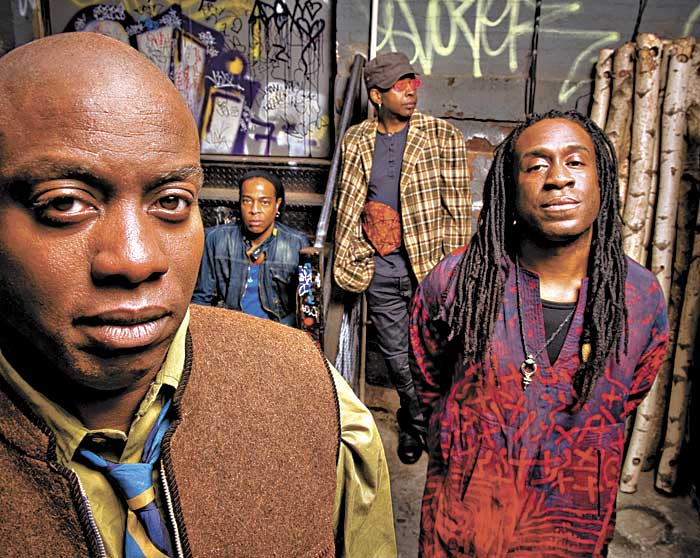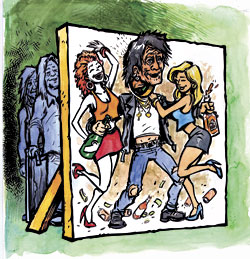A few months after the November digital release of Saul Williams’ The Inevitable Rise and Liberation of NiggyTardust!, producer Trent Reznor was disheartened.
Reznor had masterminded the Radiohead-esque plan of letting listeners choose between obtaining the work for free or contributing $5 for a higher-quality download. The overwhelming majority of the 150,000 downloaders had chosen the first option, which caused Reznor to glumly remark to CNET News: “[T]he idea was wrong in my head and for once I’ve given people too much credit.”
Williams, however, remains thrilled with the results of the experiment. The highly regarded spoken word poet, actor, and rapper/singer says the project has introduced thousands of new people to his music, and created fervent demand for his tour. Further, the unique arrangement put money into his pocket much faster than a traditional record release would have.
“I would be living off an advance right now, rather than actually living off the proceeds of the album,” he says. In fact, paid downloads spiked immediately after Reznor made his dissatisfaction known. “All of these people were like, ‘Oh my God, I loved the album. Now I actually want to go back and pay for it.'”
Though NiggyTardust! lacks anything even remotely radio friendly—other than, perhaps a cover of U2’s “Sunday Bloody Sunday”—it remains a compelling, atmospheric work, and made it onto a number of critics’ 2007 year-end top-10 lists. An unclassifiable hodgepodge of hip-hop, dance, industrial, and rock music, it plays loosely with the concept of David Bowie’s The Rise and Fall of Ziggy Stardust and the Spiders From Mars, exploring racial issues the way Ziggy Stardust delved into gender. The narrative sees the title character fight personal demons within a rocky, hallucinogenic landscape, borrowing themes from Williams’ most compelling spoken-word performances.
The project began to coalesce in 2006 via conversations held between Williams and Reznor while the former toured with the latter’s band, Nine Inch Nails. Reznor was embroiled in a dispute with his longtime label, Interscope, and with NiggyTardust! decided to swear off majors once and for all. “From the start, I remember Trent saying, ‘Let’s give it away for free,'” Williams told me back in October. “At first, I was like, ‘This dude is out of his mind!’ But then it really started making sense, and, of course, with Radiohead doing it, we were like, ‘What the fuck?’ The idea that we had was great, and we should really follow it through.”
Reznor nonetheless appears to have abandoned the idea of releasing entire albums for free. He recently announced that NIN’s new collection of instrumental songs, Ghosts I–IV, will be available in a number of different formats at a number of different price points, and that only the first nine tracks can be legally downloaded for free.
But, Williams says (via a fairly outlandish metaphor), a project’s artistic merit should dwarf any concerns about its financial viability. “Let’s say you have the cure for AIDS, for example. Are you going to be really mad that not enough people paid for it? Or are you going to be pleased about the fact that you were able to heal so many people?”
He adds that the album’s vivid imagery has many fans excited for his live show, which he promises will feature plenty of effects and high drama. “This was an opportunity for me to delve back into my theatrical experience—I’m a big believer in the role of theater in creating change and spectacle and entertainment all at the same time,” he says, neglecting to get into specifics.
He’s also gearing up for a physical release of NiggyTardust! on the Fader label. It will contain about seven new songs, including a new version of “No One Ever Does” called “Pedagogue of Young Gods,” and should be available in late spring or early summer. He contends that the new tracks up the ante on an already fairly explosive work. “I don’t know if I did it on purpose, but the more I listen to them, the more I realize that I saved the most hard-core, the most dance-y and thought-provoking tracks for the physical release,” he says, perhaps initiating an even more revolutionary concept—the ever-evolving, continually improving album. “I would call [the new songs] thought-provoking,” he concludes with a sly laugh. “There’s a lot of fun stuff.”








